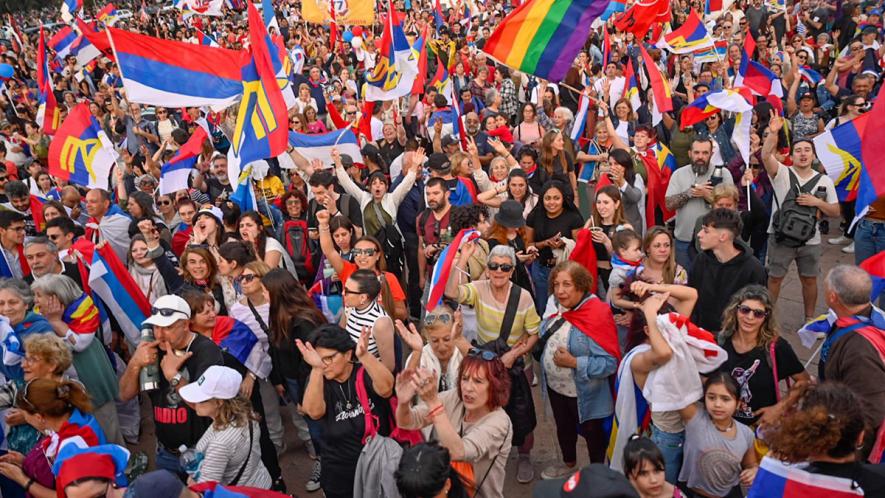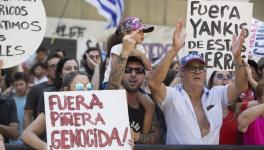Uruguay Prepares For General Elections

A rally for Yamandú Orsi, candidate for the Broad Front coalition (Photo: @Frente_Amplio via X)
Next Sunday, October 27, the people of Uruguay will elect their president and parliamentarians. For now, none of the political forces have a big enough difference in the polls that would indicate a clear winner in the first round of the election. Two political forces, one a right-wing coalition and the other, a center-left, will presumably get the most votes.
The possible alliance of the right
On the one hand, there is the alliance of several right-wing parties (National Party, Colorado Party, Open Council, and Independent Party) which, although they will participate separately in the first round, have agreed to support the presidential candidate who obtains the highest number of votes for the second round. According to the latest polls, it appears that such a candidate will be Álvaro Delgado, a veterinarian from the National Party (PN).
According to the Constitution, the president cannot be reelected immediately, so current President Luis Lacalle Pou chose to place on the ballot Delgado, a man of confidence of the current president (he was Secretary of the Presidency of his government for more than three years). Lacalle Pou’s government has been characterized by a domestic policy close to liberalism and neoliberalism, and his foreign policy has been marked by his strong positions and statements against progressive and leftist governments of the world.
The gamble of the Broad Front
On the other hand, it appears that Yamandú Orsi, a history professor, will also advance to the second round. Orsi is a member of the Popular Participation Movement (MPP), which is part of a large alliance of center and left-wing parties called the Broad Front (Frente Amplio). The alliance includes very diverse political positions, ranging from Communism to Christian democracy. This has forced the center-left alliance to reach minimum agreements for the elaboration of a government plan, not without the appearance of significant internal controversies.
The FA achieved three consecutive presidential victories between 2004 and 2014 (Tabaré Vázquez, José Mujica, and Vázquez again). Their administrations were characterized by the application of social democratic public policies tending towards the Welfare State.
What do the polls say?
With less than two weeks before the election, the polling firm Factum forecasts that Orsi of the FA will obtain 44% of the votes, while Delgado of the PN will barely reach 24%. On the other hand, the pollster places the historical right-wing party, the Colorado Party, led in the elections by the young lawyer Andrés Ojeda in third place, with 17% of voting intention. Some experts warn that Ojeda could surprise and surpass the National Party to enter as the right-wing candidate to the second round. In fourth place are the right-wing parties Cabildo Abierto, which has 4%, and the Independent Party, which has 3%.
The Factum poll does not bode well for the center-left coalition, since in a hypothetical second round, the right could add more votes if they reach a government alliance (something that already happened in the case of Lacalle Pou). In other words, 48% of the votes would go to the right, while 44% will vote for the center-left. This is of special importance if one takes into account the future composition of the parliament, in which, according to the polls, the right will have the majority of the seats.
In any case, a potential presidential runoff does not work as a simple mathematical sum. Hence, the two major Uruguayan political tendencies are already looking ahead to the second round and are therefore working on possible alliances and strategies to add the necessary votes to obtain the coveted presidency of Uruguay. The truth is that the new president of Uruguay will have to face an increasingly radicalized opposition with severe social challenges, such as the growing insecurity and the economic inequality that weighs on one of the poorest South American countries.
Get the latest reports & analysis with people's perspective on Protests, movements & deep analytical videos, discussions of the current affairs in your Telegram app. Subscribe to NewsClick's Telegram channel & get Real-Time updates on stories, as they get published on our website.















